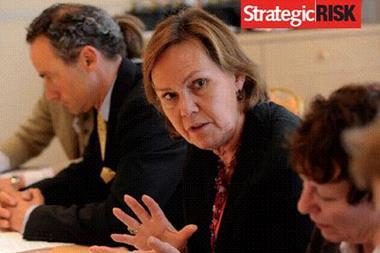Recent disruptions to fuel supply reveal the need for business continuity planning but some macroeconomic risks are beyond the control of a single company
A huge upswing in global demand for oil as well as supply difficulties—OPEC pumped 350,000 barrels a day less in April than the previous month—have pushed oil prices to record highs and prompted concerns about a serious global downturn.
At around $140 a barrel oil prices have reached unprecedented levels. This has driven world energy ministers to call for a hike in production to prevent the global economy slipping into recession.
These long term trends, particularly the booming demand from emerging markets, have dovetailed with recent local issues to cause serious problems for individual companies. Taking a look at just two recent events, it’s clear how vulnerable supply can be to events in a single place.
In April a workers strike over pensions at Scotland’s biggest oil refinery led to the plant being closed for safety reasons. The labour dispute cut oil supplies to Scotland and northern England, and also resulted in the closure of a pipeline that pumped 40 % of the UK’s oil. The plants recovery was further delayed by a fire in May, which exacerbated fuel supply problems.
Western Australia was hit by its own energy crisis this month when an explosion at a gas processing plant cut natural gas supplies by 30 %. Apache Corporation reported a pipeline rupture and fire at its Varanus Island gas processing and transportation hub, which mainly supplies industrial customers.
A robust business continuity plan helps firms prepare for these kinds of disruption. In a wider sense, the macroeconomic nature of the risk poses a unique challenge for risk managers and one which organisations themselves may have little or no control over.
The World Economic Forum advocates the use of country risk officers to manage the complexity of the global risk environment. An international forum of country risk officers could potentially offer a much improved capacity to exchange information about inherent cross-border global risks, and also improve the global ability to anticipate and respond to risk, found the Forum.
“It is up to the risk management process in the company to identify all the critical risks for that company.
Frank Baron, board member of SIRM
Tackling the interdependencies of risk is a key priority for the international community. That’s because the rise in fuel costs, for example, has subsequent knock on effects for other commodities like food, which is having a devastating impact on the worlds poor.
Other kinds of risk also emerge from a commercial perspective. As the price of various commodities rise some governments are making moves to nationalize key assets and posing a significant challenge to foreign investors. The resurgence of resource nationalism is particularly evident in Latin America. Very recently, in a nationally televised address Venezuelan President Hugo Chavez ordered the nationalisation of the country’s cement industry.
State intervention may not be restricted to emerging markets. Derek Simpson, joint general secretary of Unite, one of Britain’s biggest unions called on the Prime Minister Gordon Brown to levy a windfall tax on the billion pound profits of oil companies.
Looking for the right answers to these problems is not a simple task. The presidents of the European risk management associations provided some counsel at the Presidents Roundtable in April this year.
Ralf Oelßner, president of the German risk management association DVS said: ‘There are so many macroeconomic risks out there that a company as such cannot really control. However they are still risks to the company and one should be aware of them.’
Frank Baron, board member of the Swiss association SIRM, added: ‘It is up to the risk management process in the company to identify all the critical risks for that company. Some of them may be under control of the company, some may not be. But it is your responsibility to be at least aware of them and maybe take them into account in the company’s strategy or the business model.’




















No comments yet